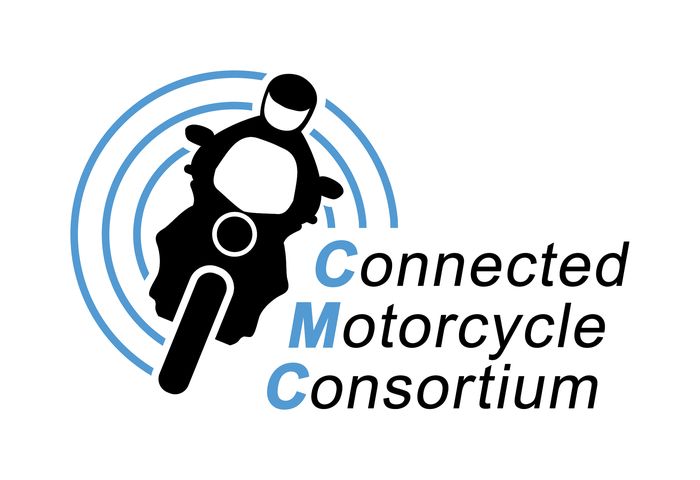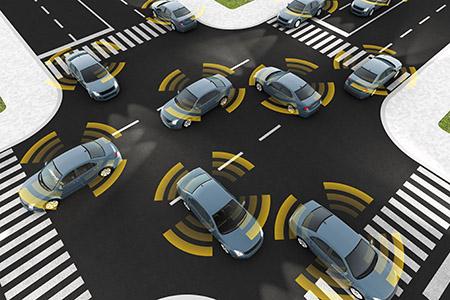 Future Connected Mobility – While we have been preparing an article that takes another look at automated driving and the reaction to motorcycles, fitting of systems to motorcycles, two articles of news reach us.
Future Connected Mobility – While we have been preparing an article that takes another look at automated driving and the reaction to motorcycles, fitting of systems to motorcycles, two articles of news reach us.
Overall, aspects of automated driving and indeed riding detection is moving on at a pace, as automation moves steadily to achieve science fact and not just science fiction.
The ultimate goal of all this is to be sitting in a vehicle, with the vehicle in full control, not the driver in a fantastical world that mimics how we drive and ride at present, for better or worse.
FEMA – Self-driving Cars Keep Making Mistakes
The first report was from the Federation Of European Motorcyclists Associations (FEMA) that again looks at the issue – Self-driving cars keep making mistakes – and make the statements that, “After our already confirmed concerns, the Uber accident in Tempe, Arizona, in March and the role of the software in this, makes clear that driver assistance systems in cars need to be made more safe and that so-called self-driving cars are far from ready to access our public roads.
After many small and bigger incidents with self-driving cars and with advanced driver assistance systems a third indication came up that manufacturers of these systems and these cars expose us to an excessively high risk. This time a pedestrian was mistaken by the software for a garbage bag or another static object and the car did not react when she crossed the road. With another incident the self-driving car did not notice an unmoving police motorcycle.
FEMA General Secretary Dolf Willigers comments: “It is time for the European Commission to come with proper testing criteria for ADAS and for self-driving cars and for both the European Union and the national governments to stop following blindly the manufacturers which do not have road safety as their primary target”.”
The second report comes from the FIM – Fédération Internationale de Motocyclisme (International Motorcycling Federation) as they announce that they are – A New Associate Member of the Connected Motorcycle Consortium
FIM – A New Associate Member of the Connected Motorcycle Consortium
 Connected Motorcycle Consortium (CMC), a non-profit organisation, is supported now by seven world leading motorcycle manufacturers; Ducati, KTM, Kawasaki and Suzuki while BMW Motorrad, Honda and Yamaha are the core members and have been the driving force to establish CMC.
Connected Motorcycle Consortium (CMC), a non-profit organisation, is supported now by seven world leading motorcycle manufacturers; Ducati, KTM, Kawasaki and Suzuki while BMW Motorrad, Honda and Yamaha are the core members and have been the driving force to establish CMC.
In 2014 all manufacturing members of the Association des Constructeurs Européens de Motocycles (ACEM) have committed to introduce at least one of their PTW models equipped with C-ITS functionality by the year 2020 thus the members of the CMC are paving the way to achieve this shared goal of the European PTW industry.
CMC targets to improve motorcycle rider safety and comfort. Connected mobility / Vehicle-to-Vehicle Communications / Cooperative Intelligent Transportation Systems (C-ITS) are being developed, but motorcycle-specific safety aspects haven’t been taken into consideration sufficiently so far. CMC’s goal is to develop a common basic specification for motorcycle ITS, with as many cross-manufacturer standards as possible. Paramount for all members of CMC is the active contribution to the common project by supporting all bodies of the consortium depending on membership level.
Hennes Fischer, CMC Promoting & External Relations WG – “CMC is focused on developing motorcycle related standards; this makes a technical expertise a key factor for all participating parties. That is why CMC welcomes FIM as consortium member and is looking forward to FIM contribution for safer motorcycling and integration of motorcycles in future traffic planning.”
Damiano Zamana, FIM Programmes Director – “The FIM enhance its role of being the global advocate for motorcycling participating to the CMC bringing the motorcyclists’ needs at the core of the joint effort with manufacturers, representing PTW specific requirements and functions with the objective of integrate the PTW into the C-ITS community and international policy maker’s institutions.”
Connected Motorcycle Consortium – ACEM – 2018 OECD International Transport Forum
 Then just we are about to publish we find another report from the Connected Motorcycle Consortium regarding the CMC and ACEM at the 2018 OECD International Transport Forum
Then just we are about to publish we find another report from the Connected Motorcycle Consortium regarding the CMC and ACEM at the 2018 OECD International Transport Forum
“The Connected Motorcycle Consortium (CMC) and the European Association of Motorcycle Manufacturers (ACEM) and will participate in the 2018 edition of the OECD International Transport Forum that will take place between 23 and 25 May in Leipzig, Germany.
The theme of the Forum will be “Transport Safety and Security” and it will address a wide range of issues including: connected vehicles, planning and design of safety transport systems, road infrastructure and safety management and the link between economic activity and road safety trends.
Motorcycle safety experts from the CMC and ACEM* will be present at the 2018 International Transport Forum to elaborate on some of the different initiatives led by the industry to improve motorcycle safety in Europe, CMC experts will discuss with attendees the potential of connected intelligent transport systems (C-ITS) to improve motorcycle safety, the need for interoperable C-ITS applications as well as the risks and benefits of car automation for motorcyclists’ safety.
Moreover, the Secretary General of the International Motorcycle Manufacturers’ Association will deliver a presentation on the situation of motorcycle safety at an international level.”
Cooperative Mobility Systems and Automated Driving
 And then another report surfaces from the International Transport Forum ITF Cooperative Mobility Systems and Automated Driving with more of where we were going with our planned article on regulatory frameworks.
And then another report surfaces from the International Transport Forum ITF Cooperative Mobility Systems and Automated Driving with more of where we were going with our planned article on regulatory frameworks.
The International Transport Forum at the OECD is an intergovernmental organisation with 59 member countries. It acts as a think tank for transport policy and organises the Annual Summit of transport ministers. ITF is the only global body that covers all transport modes. The ITF is administratively integrated with the OECD, yet politically autonomous.
The report’s summary and conclusion state, “Automated vehicles could make roads safer as well as reduce congestion. Whether society will be able to capture these benefits while minimising negative impacts depends on effective regulation of self-driving vehicles. The technology is still largely experimental and mass use is likely to take decades. Today’s regulatory frameworks can stretch to accommodate early deployment, but they will not be sufficient in the long term. This report reviews the range of existing service concepts for automated driving systems and technologies, the operational environments they require and assesses the need for regulatory action.”
Two quotes from the report Cooperative Mobility Systems and Automated Driving Summary and Conclusions – pdf stick out after a quick read such as – “Attempts to short-circuit the regulatory process to promote early implementation of systems that are not yet mature will produce adverse safety events, which are in turn likely to produce a public backlash that will delay the eventual widespread implementation of AV (Automated Vehicle) technology.”
Then “Equally, regulators could put greater effort into increasing the standard for human drivers. At present, there are high levels of non-compliance with road rules among human drivers. Increasing enforcement, such as through greater implementation of electronic enforcement mechanisms, would change the driving experience for human drivers in a way that may make AV driving more competitive (Walker-Smith,2015)”
The first we would agree with, but the second we are flabbergasted, but not surprised!
As somebody mentioned to us the other day, if we walked around without using vehicles we would still bump into each other, so in that respect, would walking need to automated – maybe sitting at home with our robot counterparts wandering the streets?
Original Sources – FEMA – Self-driving cars keep making mistakes – FIM New Associate Member of the Connected Motorcycle Consortium – CMC and ACEM at the 2018 OECD International Transport Forum – Cooperative Mobility Systems and Automated Driving
Motorcycle Minds – reports – article – Automation


Leave a Reply